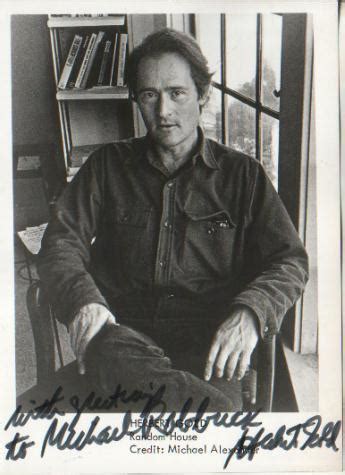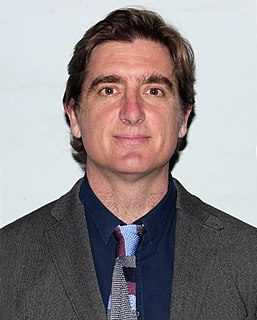A Quote by Angela Carter
Aeneas carried his aged father on his back from the ruins of Troy and so do we all, whether we like it or not, perhaps even if we have never known them.
Related Quotes
Were I to go down into the market-place, armed with the powers of witchcraft, and take a peasant by the shoulders and whisper to him, 'In your lifetime, have you known peace?' wait for his answer, shake his shoulders and transform him into his father, and ask him the same question, and transform him in his turn to his father, I would never hear the word 'Yes,' if I carried my questioning of the dead back for a thousand years. I would always hear, 'No, there was fear, there were our enemies without, our rulers within, there was prison, there was torture, there was violent death.
The stories of the first refugees that I ever came across in literature - that lots of people ever came across - were in 'The Iliad': the escape of Aeneas with his father on his back, the Trojans, from their burning city, and the defeat of their kingdom and what they had to do to try and find safety.
When the father dies, he writes, the son becomes his own father and his own son. He looks at is son and sees himself in the face of the boy. He imagines what the boy sees when he looks at him and finds himself becoming his own father. Inexplicably, he is moved by this. It is not just the sight of the boy that moves him, not even the thought of standing inside his father, but what he sees in the boy of his own vanished past. It is a nostalgia for his own life that he feels, perhaps, a memory of his own boyhood as a son to his father.
Taro came into the room, strands of hair flying free of the tie at the back of his skull, sweat plastering his cream-colored shirt against his chest and back. I wished I had an artist's skill, that I could make renderings of him in all his states of beauty. He would never want to look at them, or even know about them. I would just like them for myself. Maybe he would want to see them when he was much older, and beautiful in a different way.
The native American has been generally despised by his white conquerors for his poverty and simplicity. They forget, perhaps, that his religion forbade the accumulation of wealth and the enjoyment of luxury... Furthermore, it was the rule of his life to share the fruits of his skill and success with his less fortunate brothers. Thus he kept his spirit free from the clog of pride, cupidity, or envy, and carried out, as he believed, the divine decree-a matter profoundly important to him.
I loved my father, but I was not like him. I never needed to believe the best of people. I took them as they were: two-faced, desperate, kind - perhaps all at once. But to Pa, they were all children of god, poor troubled sheep, who only needed love and an even break. He needed the world to back up what his religion told him about people. And when it came down to a choice between reason and faith, he let go of reason.
Every man is of importance to himself, and, therefore, in his own opinion, to others; and, supposing the world already acquainted with his pleasures and his pains, is perhaps the first to publish injuries or misfortunes which had never been known unless related by himself, and at which those that hear them will only laugh, for no man sympathises with the sorrows of vanity.
The face of the Son of God, who, instead of accepting the sacrifice of one of his creatures to satisfy his justice or support his dignity, gave himself utterly unto them, and therein to the Father by doing his lovely will; who suffered unto the death, not that men might not suffer, but that their suffering might be like his, and lead them up to his perfection.
It is essential for the photographer to know the effect of his lenses. The lens is his eye, and it makes or ruins his pictures. A feeling for composition is a great asset. I think it is very much a matter of instinct. It can perhaps be developed, but I doubt if it can be learned. To achieve his best work, the young photographer must discover what really excites him visually. He must discover his own world.
Perhaps some deep-rooted atavism urges the wanderer back to lands which his ancestors left in the dim beginnings of history. Sometimes a man hits upon a place to which he mysteriously feels that he belongs. Here is the home he sought, and he will settle amid scenes that he has never seen before, among men he has never known, as though they were familiar to him from his birth. Here at last he finds rest.







































